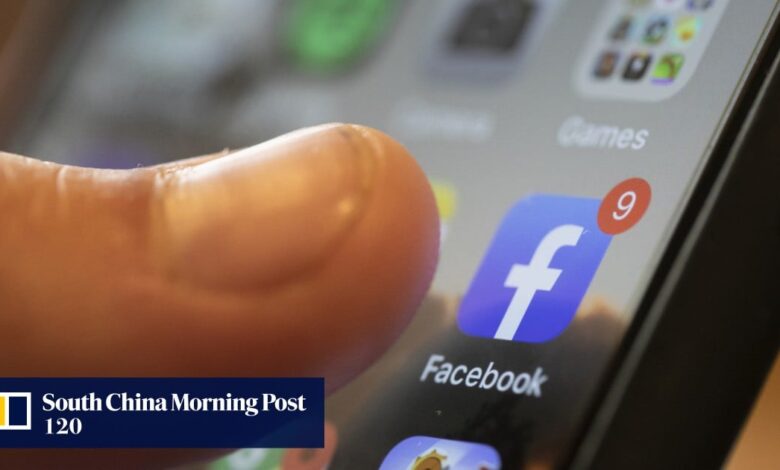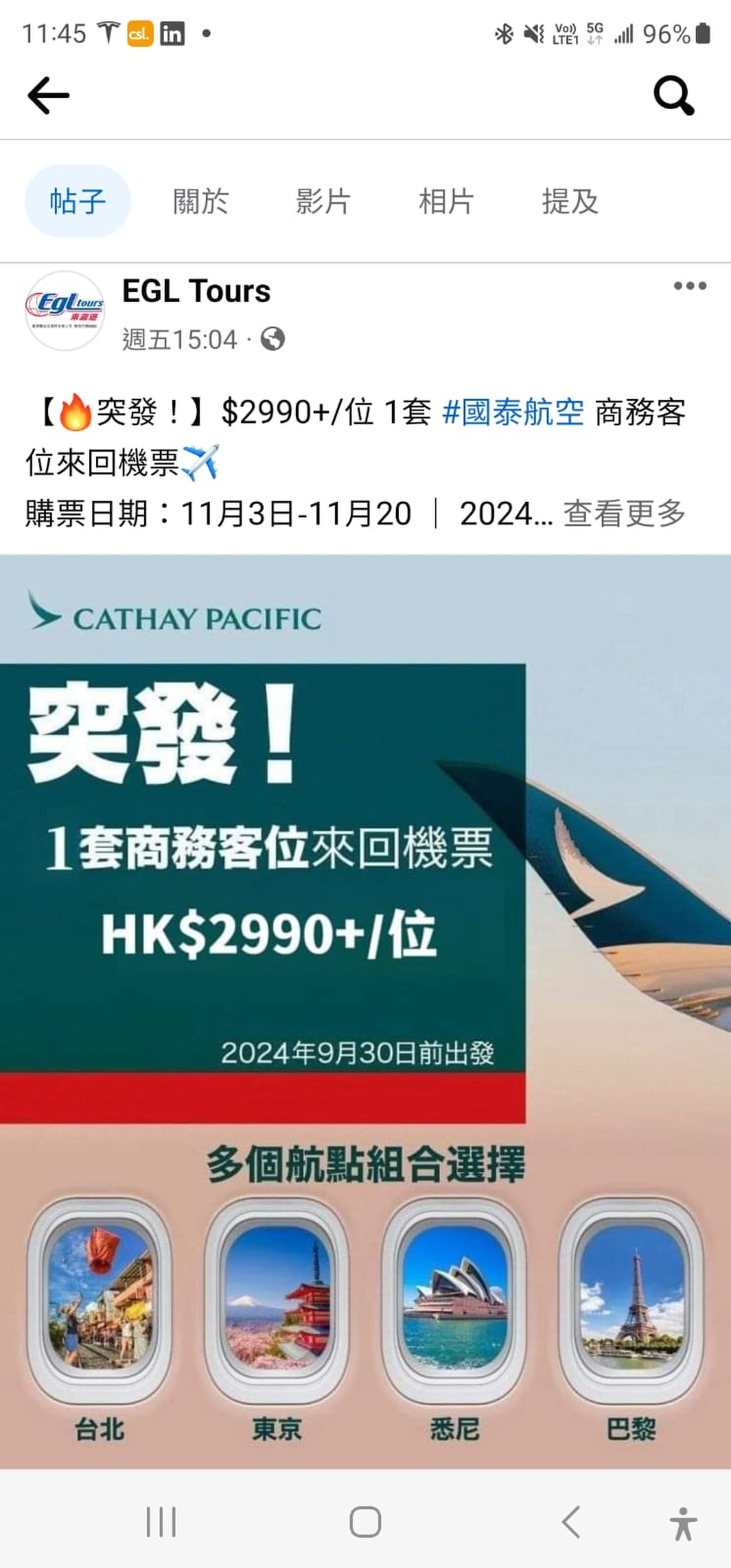Hong Kong travel agents seek police help after surge in scammers using bogus social media accounts to cheat customers seeking cheap deals

[ad_1]
Fraudulent social media accounts posing as agencies and offering special deals have surged in recent months, with EGL Tours – popular with Hongkongers booking trips to Japan – revealing it had uncovered more than 100 fake Facebook pages using its name.

Victims were asked to pay for tickets or travel packages by transferring money to a personal bank account but did not receive a booking confirmation and were unable to reach the seller again. They then checked with the travel agencies and realised they had been scammed.
In one post, a fake account using the “EGL Tours” name and trademark without a blue Facebook verification badge offered two round-trip business-class tickets to Tokyo with Cathay Pacific Airways for as low as HK$6,590. The account has 100,000 followers and received 38,000 likes.
However, the official Facebook page of EGL Tours displays both its English and Chinese names and has 176,000 likes and 185,000 followers.
Hounax platform allegedly scams 131 Hongkongers out of nearly HK$120 million
Hounax platform allegedly scams 131 Hongkongers out of nearly HK$120 million
According to Cathay’s website, a round-trip business-class ticket between Hong Kong and Tokyo was priced at HK$17,632 for early December, while an economy-class flight cost HK$4,752 including taxes and charges.
Yeung said the council and travel agencies planned to meet the force’s commercial crime bureau within two weeks to seek advice and discuss follow-up action, with the help of tourism sector lawmaker Perry Yiu Pak-leung.
Yiu said impersonation of travel agencies by fraudsters had become increasingly rampant since quarantine-free travel resumed at the beginning of the year, stressing the companies were also victims.
Hong Kong police warn about sham chat groups as investment scams at all-time high
Hong Kong police warn about sham chat groups as investment scams at all-time high
“When residents fall victim to these false advertisements, their anger is often directed towards the travel agencies and they may even seek compensation from them. It has caused significant distress within the industry,” Yiu said.
“I hope that during the meeting with police, we can highlight this issue and work towards safeguarding the interests of the industry.”
EGL Tours said it had found 103 fraudulent Facebook pages mimicking the company since the end of July by using its name and trademark. Fake offerings posted included hotel and buffet packages, flight deals and even concert tickets at extremely low and unreasonable prices, all with the purpose of deceiving consumers.
Hong Kong police arrest 30 over ‘compensated dating’, ‘naked-chat blackmail’ scams
Hong Kong police arrest 30 over ‘compensated dating’, ‘naked-chat blackmail’ scams
The company said it had received more than 20,000 customer inquiries as of Friday and had noticed an increasingly severe trend of scam cases, but did not reveal the number of victims involved.
EGL Tours said that despite multiple complaints since August to Meta – Facebook’s parent company – about the situation, it had been unable to obtain the official verification badge, a so-called blue tick, for its page as it was told the company was not well-known enough.
It said it only got the “blue tick” on Saturday after it sent a legal letter to the social media giant along with related media coverage.
EGL Tours executive director Steve Huen Kwok-chuen said the company was still consolidating the details and would hold a press conference on Tuesday to reveal the actual monetary losses, follow-up action and legal correspondence.
Yeung said the council had issued a memo last week to members who provided online sales to warn customers about fake social media adverts.
Tougher security for Hong Kong’s Faster Payment System from weekend: police
Tougher security for Hong Kong’s Faster Payment System from weekend: police
“The contact information provided by these fake pages, including addresses and phone numbers tends to be vague. Many of them use generic email addresses such as gmail, while a legitimate travel agency typically has its own domain name,” Yeung said.
“Another red flag for consumers is that scammers tend to use personal bank accounts. Consumers should not proceed with a bank transfer if they notice the recipient is not the travel agency.”
Hong Kong Information Technology Federation honorary president Francis Fong Po-kiu urged residents to remain vigilant if they spot special offers on social media and to look out for red flags.
“The scammers did not provide a link trying to hack your personal information. Instead, they engaged with people through Facebook Messenger when the people were asking for offer details,” he said.
“People should be aware of the red flag when the page operator repeatedly asks you for personal information to book flights and make payments.”
[ad_2]
Source link





